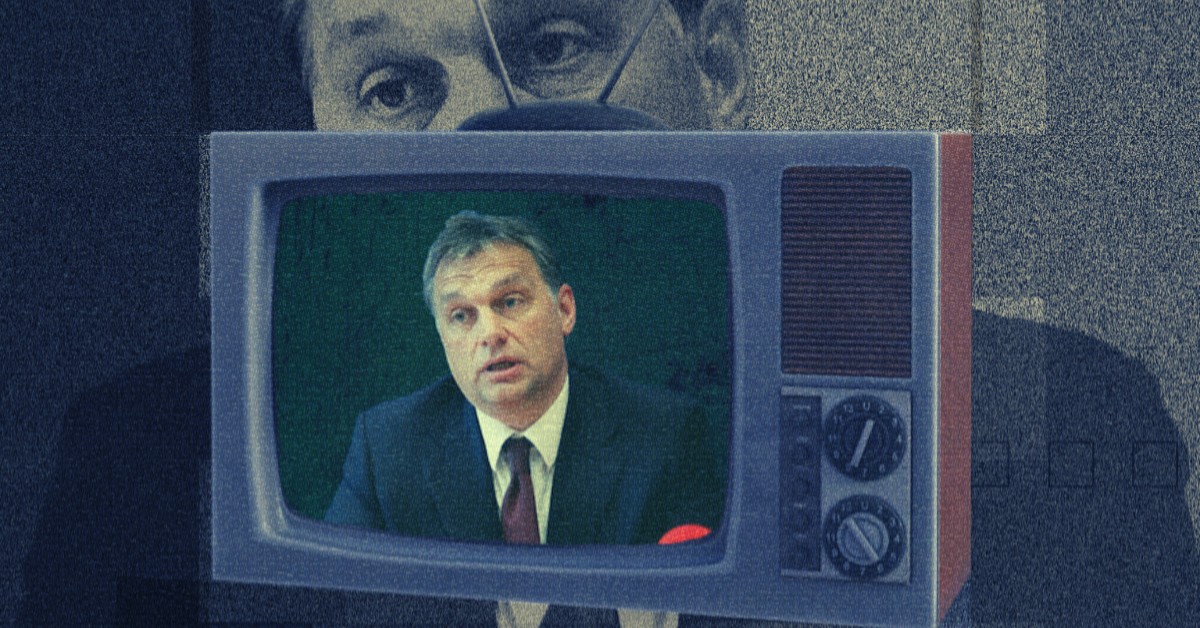How Hungarian oligarchs monopolised national media and are making a grab for Europe’s
Hungarian Prime Minister Viktor Orban’s right-wing views on issues such as European integration, the rights of sexual minorities, immigration have made him one of the most consistent allies of the Russian President Putin in Europe.
To popularise his ideas, he has aggressively taken control of the media in Hungary and other countries, Coda Story writes.
t’s happening with the media in Hungary?
Over thWhae past few years, childhood friends of Prime Minister Viktor Orban and his political allies have either destroyed or taken over almost all publications that did not share his views.
Now almost 80 per cent of the Hungarian press is controlled by either the state or the friends of the prime minister, Mertek media monitoring group asserts, adding that the monopolisation of the media is now stronger than ever since 1990, when the country moved from one-party rule to democracy.
In Hungary, the state plays an important role in the advertising business. Publications that are considered unfriendly to the Prime Minister are denied access to advertising budgets, while publications friendly to Orban are bathed in money.

Players
The country’s main media magnate is Lörints Mészáros, a childhood friend of Victor Orban.
In just a few years, he has turned from a small businessman, according to some reports, who was on the verge of bankruptcy, into one of the richest people in Hungary.
In November, the owners of 476 publications, all ‘friends of Orban’, donated their assets to a fund managed by one of the companies of Mészáros.
By the end of 2018, Mészáros owned or controlled 203 companies, with a fortune of approximately 905 million euros.
Mészáros, the most influential media magnate of Hungary, explained his rise “from rags to riches” by the influence of three factors: “God, luck, and Victor Orban.”
Next steps
Now pro-Orban Hungarian media magnates, rich and with good political connections, are taking aim at publications in other European countries: in Macedonia, in Slovenia and even in Great Britain, where Orban hopes to develop his far-right ideology.
It all began in 2017, when two former Hungarian public television managers opened companies in Macedonia, intending to invest in local media. They used these companies to gain control over a half-dozen local publications supporting the conservative party that ruled Macedonia, allied with Orban’s party.
Under the new leadership, publications began to publish fake and critical news about the opposition and civil society.
The next foothold was Slovenia. There, three Hungarian media companies (one of which appeared earlier in Macedonia) spent a year trying to gain control of the NOVA24TV.sl media group, which had a TV channel, an online news portal and a radio station founded by the conservative Slovenian Democratic Party.
In April of this year, the Hungarians ‘crossed’ the English Channel and launched the V4NA news agency in London, which covers the news agenda, sports, and publishes light articles in Hungarian, English, and French, conveying, of course, Orban’s point of view.
The fate of a journalist
Marton Gergely earlier worked at Nepszabadsag, a respected independent newspaper. After it came under the control of the allies of Orban, he was left without work.
Gergely says that Hungarian journalists are faced with a choice: go to the side of the government, and you can support a family, and maybe even hang out with businessmen from Orban’s entourage.
Gergely and other independent Hungarian journalists (of whom there are less and less) cannot think about luxury. After the closure of Nepszabadsag, he and several former colleagues tried to open their own newspaper – but they burned out, because they had neither money nor technology to support their endeavor.
Then he was able to get a job in a respected alternative weekly HVG, where his salary is 30 per cent lower than at his former newspaper, and he manages six people, not 60, as before. And yet he says: “I am very lucky and I am very happy. There is not a lot of good work left.”
Thirty years ago, when the Iron Curtain fell, young politicians gave many young Hungarians, including Hergely, hope for a new start. Now the country suffers from the ideological blinders of Orban himself and from the mediocrity of the people who surround him.
Gergely believes that many media conquests and closures were part of pure business arithmetic, a kind of sport, when every closed opposition publication became a new trophy on the walls of the oligarchs.
The fact that journalists are on the verge of extinction puts his country and other European countries at risk.
“Hungary has become a model illiberal state. And it feels like one”, says Gergely.



















